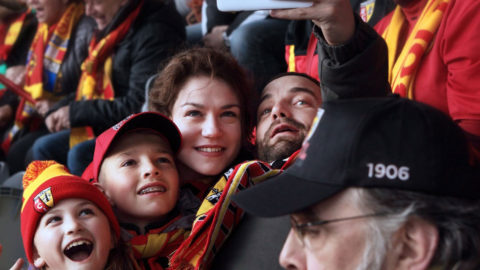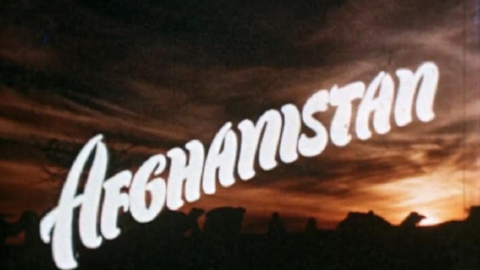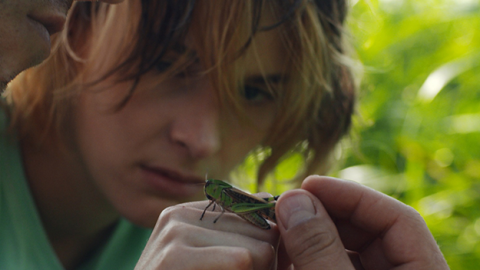Festivals: Rotterdam 2018
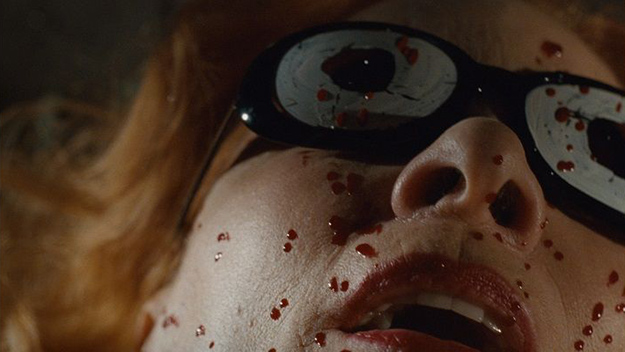
Insect
The 47th edition of the International Film Festival Rotterdam marked the third year under the stewardship of director Bero Beyer following a contentious nine-year reign by Ruger Wolfson during which the festival’s increasingly confused programming came under fire by critics. While my sampling of this year’s program—about 35 features and a handful of short and medium-length films in seven days—was pleasing and occasionally even invigorating, the artistic identity of the festival still clearly remains in transition. But then Rotterdam has long combated many of its potential handicaps—including its somewhat unfortunate calendar position, ending just days before the Berlinale, the year’s first major showcase of high-profile international cinema—by focusing on young, often experimentally minded filmmakers, while putting generous effort into their retrospective programming and project development division, the Hubert Bals Fund. While we’re still likely a few years away from Rotterdam regaining a foothold among the elite European film festivals—becoming again the kind of gathering that helped introduce directors such as Lav Diaz, Takashi Miike, and Carlos Reygadas to international audiences—the 2018 edition was another step in the right direction.
The festival’s one marquee world premiere was Insect, the purportedly last film by 83-year-old Czech surrealist and stop-motion animator Jan Švankmajer. Developed from a short story the filmmaker wrote in 1970 but left unpublished due to censorship restrictions, the film bears many hallmarks of an auteur’s final work. Švankmajer himself opens the film seated before the camera, commenting on the actors (who we see in the periphery) and the production before reflecting briefly on the film’s subject and themes. These pauses for Švankmajer’s commentary on the action recur throughout the film; footage of him directing the actors and technicians also crops up. The story itself concerns an amateur theater troupe rehearsing for a stage production of Pictures from the Insects’ Life, a satirical 1922 play by Josef and Karel Čapek in which a variety of bugs stand in for the human race.
While the Švankmajerian potential of such a scenario is enough to paint a perfectly grotesque picture in the viewer’s mind, what results is far more modest in scope. For better or worse, Švankmajer seems more interested in the working dynamic of his actors—both those performing in the film and those same men and women who are futilely attempting to rehearse for a stage production that calls for them to don exaggerated insect appendages and bug-eyed goggles—than in constructing an elaborate transposition of the Čapeks’ tantalizing characterizations. Indeed, save for a few brief bursts of animation hinting at what a full-fledged adaptation might resemble, a majority of the film is given over to the theater company’s humorous logistical and interpersonal struggles, which find them taking on many traits of their invertebrate counterparts, as well as behind-the-scenes moments of Švankmajer at work on the film, including some fascinating footage of the visual effects being workshopped. What this will all amount to for someone unfamiliar with the director’s past work is anyone’s guess. But as a clearly personal, some might say pedagogical, film it’s revealing and occasionally even touching.
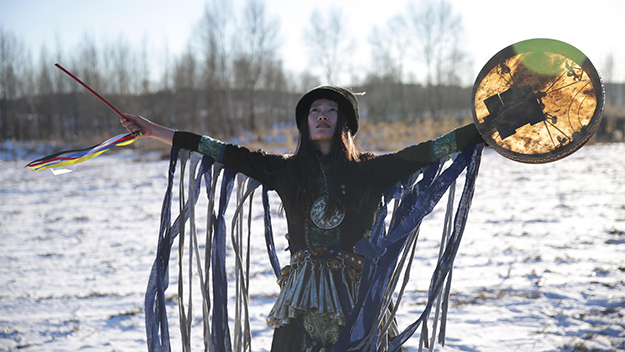
The Widowed Witch
One of Beyer’s first and wisest edicts upon taking over the festival was the elimination of the trio of awards that were for years given to three different films competing in the festival’s main section, the Hivos Tiger Competition, dedicated to first- and second-time filmmakers. Now, with only one winner and a reduced selection of competing titles (this year only eight), one can more easily take stock of the entire section. As luck would have it, this year’s Tiger winner, The Widowed Witch, by Chinese director Cai Chengjie, was not only the strongest film in the section, but one of the better new films at the festival. A lively mix of mysticism and amorality, Cai’s first feature sets its long-suffering protagonist Wang Erhao (Tian Tian), a thrice widowed woman with a penchant for serendipitous feats of healing, on an allegorical journey across snow-capped northern China. Perceived as cursed and labeled an outcast, Erhao shrewdly embraces the supernatural aspects of her reputation, rebranding herself as a shaman as she sets off from her former family’s home to rid villagers of evil spirits. With only her deaf, 10-year-old brother-in-law as a travel companion, Erhao seeks a more welcoming and empathetic community but finds that greed and immorality run deeper than any fleeting ailment.
Shooting in Academy ratio in a combination of color and black and white (while occasionally mixing the two), Cai ably balances the mundane and the miraculous, often wresting one from the other even as Erhao grows ever more disillusioned with the extent of her powers. In the lead role, Tian demonstrates remarkable range, humorously exploring her character’s personality one moment while standing poised in the face of degradation the next. Often playing out in a single shot from a low or off angle, scenes frequently run for minutes on end, allowing Cai and his actors to utilize the static frame as a catalyst for both comedic interplay and spartan drama. As a satire of the cultural woes plaguing contemporary China, The Widowed Witch is sharp and at times even subversive; more importantly, as a piece of filmmaking, it’s distinct enough to stand apart from its sociopolitical context.
Attempting to navigate Rotterdam’s other dozen-plus strands, let alone parse their individual programming directives, can be daunting. (If anyone can explain in less than a few sentences the differences between the Bright Future, Visions, and Perspectives programs, I’m all ears.) But this year the History of Shadows section, programmed by Gustavo Beck and Gerwin Tamsma, provided a wonderful model, playing like a carefully curated mini festival of its own. A revelatory mix of films both new and old, commercial and experimental, the program, which focused on “the diverse ways in which cinema deals with the past and history’s losers,” covered an impressive amount of ground, from an obscure and troubling 1976 documentary portrait of the family of Spanish poet Leopoldo Panero (El desencanto, by Jaime Chávarri), to a striking black-and-white landscape film that utilizes the words of Freud, Pasolini, and Ingeborg Bachman to meditate on the twin histories of European art and violence (Annik Leroy’s Tremor—Es ist immer Kreig), to a selection of last year’s most powerful reckonings with colonial power and prejudice (Lucrecia Martel’s Zama, Narimane Mari’s Le Fort des fous, and Travis Wilkerson’s Did You Wonder Who Fired the Gun?). All that and there was even room for a television show: The Red Shadow, by German genre maverick Dominik Graf.
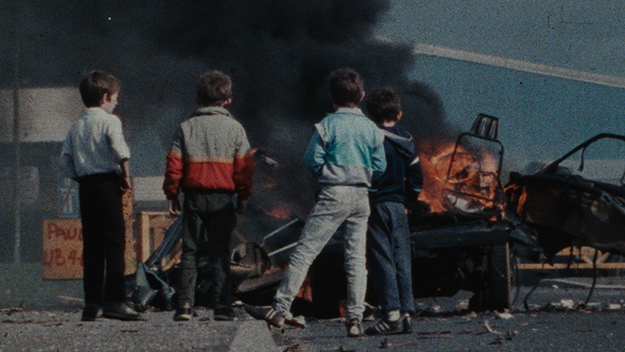
The Image You Missed
But to these eyes the standout was Les Unwanted de Europa by Italian filmmaker Fabrizio Ferraro. Shot in luminous black and white along the hills of the southeastern Pyrenees, the film tracks the final days of philosopher Walter Benjamin as he flees from France to Spain to avoid Nazi persecution. In patient strides and with little conversation, Benjamin (played by Euplemio Macri) takes up with a small group of refugees, and together they set off across the lush but imposing countryside. Combining long passages of quite observation with brief pockets of dialogue and stirring interludes soundtracked by John Cage, Ferraro sidesteps traditional narrative signposts to take a more contemplative approach to Benjamin’s journey, suggesting at once the more metaphysical dimensions of our protagonist’s mission and the resonances with Europe’s ongoing refugee crises. Reminiscent in tone and beauty of Albert Serra’s early folk reimaginings (Honor of the Knights, Birdsong), Les Unwanted de Europa confirms an artist with an acute sense of cinematic time and historical memory.
Premiering in the festival’s Regained sidebar (another vaguely defined subsection) and reflecting a more personal history was The Image You Missed, a moving and thoughtful first-person essay film by Irish-born filmmaker Donal Foreman. Son of director Arthur MacCaig (The Patriot Game), whose politically charged documentaries dealt directly with Ireland’s social and religiously fraught history, Foreman knew little of his father growing up, as MacCaig left Dublin for America early in his son’s life. Through a combination of home movie footage and faded photographs, archival imagery, and excerpts from both MacCaig’s films and Foreman’s own early forays into filmmaking, The Image You Missed plays as a kind of epistolary correspondence between father and son through moving images. Speaking to his father, who passed away in 2008, in ruminative voiceover, Foreman looks back upon MacCaig’s life and career in an attempt to both understand his estranged father’s apparent disinterest in raising a family and his paradoxical dedication to cinema as a tool for stoking unity and sociopolitical change.
Finding both similarities and drastic differences in their personalities and beliefs, Foreman scans the few images of him and MacCaig taken by his mother in their early years together, reminisces lovingly about the memories of those fleeting moments, and compares them with the public figure he eventually came to know through film. At one point we learn that Foreman went to visit his father in Paris a few years before his death; though cordial, the meeting only confirmed his father’s inability to reconcile the demands of his personal, political, and professional lives. Indeed, it’s only through MacCaig’s images that Foreman is able to properly measure the capacity of his father’s convictions. No longer beholden to his elder’s legacy, Foreman seems poised to carve out one of his own.
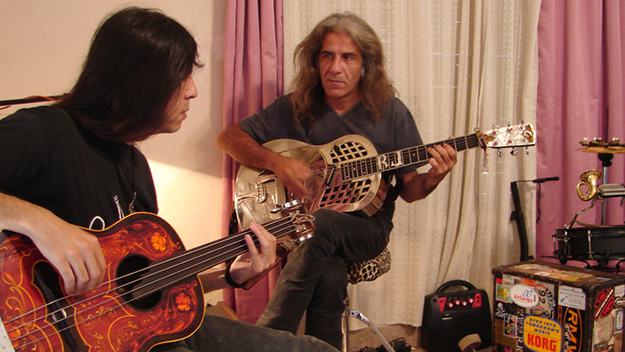
Fango
It would be remiss to pass over this year’s retrospectives. Headlined by a pair of programs dedicated to Argentine anarcho-auteur José Celestino Campusano and the high-gloss commercial cinema of the south Indian state of Tamil Nadu, this year’s repertory selection evinced the sort of idiosyncratic and nonconformist approach to programming (and not simply in style or sensibility, but also vintage—the oldest film in either program was from 2006) that the wider festival would do well to replicate. In that sense I hope it’s no backhanded compliment to say that the best film I saw IFFR 2018 was from six years ago, but Campusano’s micro-budget revenge drama Fango (translation: Mud) is just the sort of discovery one hopes to make at a festival, opening up an obscure filmmaker’s entire (twisted) worldview. Set in a rough-and-tumble neighborhood in one of the seedy small towns surrounding Buenos Aires in which Campusano’s stories usually play out, Fango stars Oscar Génova as El Brujo, a greying metalhead trying to cobble together a makeshift “tango-trash” band while his wife spends her afternoons not-so-discreetly banging their married neighbor. When lesbian ex-con Nadia (Nadia Batista) discovers the infidelity, she and her gang of butch cohorts kidnap El Brujo’s wife and shackle her to a bed. What commences is a series of stabbings, shootings, and rapings that pit male versus female gang members and, eventually, El Brujo versus Nadia in a showdown worthy of a Sam Fuller western.
Campusano shoots this little urban amorality play in stripped-down fashion, with real-life locals in unvarnished domestic and public spaces; in both resourcefulness, cultural specificity, and off-hand poetics I was reminded of the best of the L.A. Rebellion filmmakers (Charles Burnett, Julie Dash, Billy Woodberry, et al.), whose neorealist impulses resulted in similarly striking portraits of marginalized communities. But Campusano’s vision, classic yet caustic, rooted in archetypes muddied by sin and incivility, is entirely his own. Here’s hoping that such rebel programming continues to corrupt the entirety of Rotterdam in the coming years.
Jordan Cronk is a critic and programmer based in Los Angeles. He runs Acropolis Cinema, a screening series for experimental and undistributed films, and is co-director of the Locarno in Los Angeles film festival.



